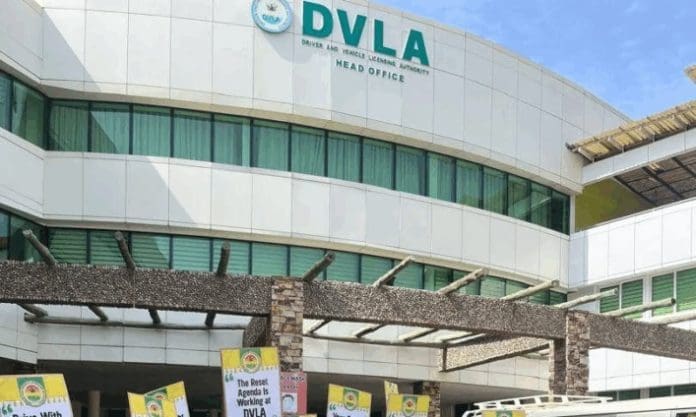Ghana’s Driver and Vehicle Licensing Authority (DVLA) has been directed to achieve a 60 percent revenue increase by mid-2026, with targets rising from a projected 649 million cedis this year to at least 1.038 billion cedis.
Board Chairman George Spencer Quaye announced the ambitious target during the conclusion of DVLA’s 2025 Mid-Year Review Conference in Ejisu, Ashanti Region. The directive emphasizes digital platform expansion and innovative service delivery methods to meet the substantial revenue growth expectations.
Quaye outlined specific strategies including expanding service points nationwide and maximizing utilization of digital systems, particularly the Vehicle Registration System. The approach reflects broader government efforts to modernize public service delivery while increasing internally generated revenues.
The chairman issued stern warnings against corruption within the authority, emphasizing that fraudulent activities represent losses to national resources. “The Board will not tolerate corruption,” Quaye stated. “We will protect integrity, reward transparency, and hold accountable anyone who puts personal gain above national duty.”
Regional managers received instructions to prioritize road safety initiatives through bi-annual strategic planning and enhanced collaboration with the Police Motor Traffic and Transport Department. Quaye highlighted concerns about inadequate vehicle roadworthiness inspections affecting public safety.
The board chairman commended Chief Executive Julius Neequaye Kotey’s leadership while directing full operationalization of the Research Advisory and Data Services framework. This initiative aims to transform DVLA into a center for evidence-based policy development and implementation.
Quaye emphasized DVLA’s broader mandate beyond traditional licensing functions, describing the organization as a guardian of public safety and contributor to national development. The characterization reflects expanded expectations for the authority’s role in Ghana’s transportation sector.
The mid-year review conference attracted senior government officials including the Deputy Minister for Transport and the Ashanti Regional Minister. DVLA board members, management staff, regional managers, and operational personnel participated in the strategic planning sessions.
The revenue targets reflect government pressure on state agencies to increase internally generated funds amid fiscal constraints. DVLA’s mandate encompasses vehicle registration, driver licensing, and road safety enforcement, representing significant revenue potential through improved service delivery.
Ghana’s transportation sector has undergone modernization efforts including digitization of licensing processes and enhanced enforcement mechanisms. The revenue growth targets align with broader public sector reform initiatives aimed at improving efficiency and financial sustainability.
The emphasis on corruption prevention reflects ongoing challenges within Ghana’s public sector, where transparency and accountability remain priority concerns for government leadership and international development partners.
Source: newsghana.com.gh











